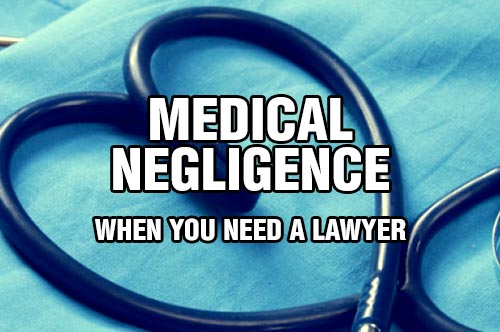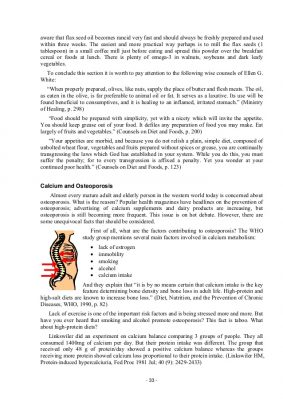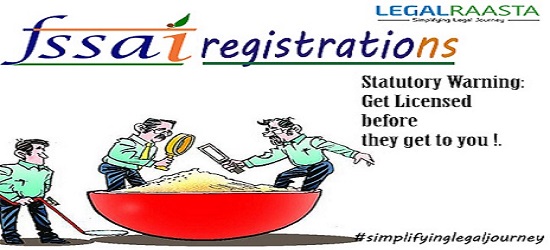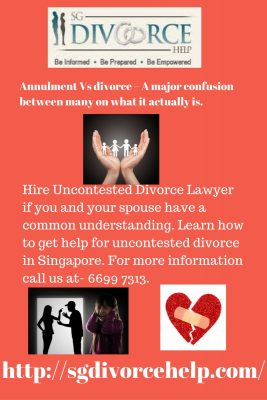It is the primary responsibility of doctors and medical professionals to take care of their patients as often people place them next to God and put a lot of trust on them. Medical professionals are fully aware of the pressure that they have and therefore, they don’t leave any stone unturned to give the best possible treatments to the patient. But the luck is not always with them and due to intense pressure; they seldom commit deadly mistakes that prove fatal for the patients. In such cases, their responsibility is to apologise and offer free of cost services from that point onwards.
Things start getting heated and serious when a medical professional commits such a mistake and refuses to admit it as then; the only option left is of hiring medical negligence lawyers. These medical negligence solicitors and advocates are fully aware of all the laws and rules and regulations to follow. Based on this, they make sure that the patient will get the deserving treatment as well as the compensation.
As far as people in general are concerned, for them, it is very important to know the in depth details of this term, “medical negligence”. With this knowledge, they will be in a better position to understand and realise when to avail medical negligence services.
Types of Medical Negligence Cases
It is important to know that in most of these cases, there are minor or major failures in the areas of treatment, diagnosis or provision of information or warnings. Some of them are:
In the field of Treatment
- Failure in performing a surgery with reasonable and required care and skills
- Failure in providing the justified post-operative care with reasonable care and skills
- Failure in providing the appropriate referral for the condition after the surgery
- Failure in appropriately treating the condition
In the area of Diagnosis
- Failure in diagnosing a condition
- Delay in diagnosis of a condition resulting in a poor outcome
- Misdiagnosis
- Failing to report correctly on test results
In the area of Provision of Information/Advice:
- Failing to warn about the risks associated with a procedure or treatment
- Failing to advise of alternative treatments and/or procedure
- Failing to disclose to the patient a medical error. In this case, you can file a suit only when you are aware that timely catered information would have allowed the patient to undergo treatment to repair the damage and save his life.
If you have faced any of these conditions, it’s your right to hire one of the best medical negligence solicitors and file for a claim and compensation. The bigger question here is when to seek legal advice and services. The points related to this question are –
You Must ask yourself:
- What do I really want?
- Do I want an investigation or an apology?
- Do I want my complaint noted so as to prevent similar accidents?
Upon getting the answers to this question, you can ask your medical negligence lawyers to act on your behalf and make a complaint regarding the negligence that you faced.
- These complaints are often handled by bodies such as the Health Care Complaints Commission.
- Your medical negligence solicitors will negotiate on your behalf with the defendant’s lawyers and their insurance company.
- There are strict time limits which apply to all compensation claims in Australia.
Anthon Bruce Associated with McDonnell Schroder. Medical professionals are fully aware of the pressure that they have and therefore, they don’t leave any stone unturned to give the best possible treatments to the patient. These medical negligence solicitors and advocates are fully aware of all the laws and rules and regulations to follow. Based on this, they make sure that the patient will get the deserving treatment as well as the compensation.
How Important Is Proof In A Negligence Case?
In any negligence case, proof is very important in order to succeed in getting a reasonable settlement for your case. However, there may be cases where proof may not be readily available. Imagine a scenario where you get late after office. If a car hits you in the office parking space, and you are badly hurt, but the driver of the vehicle runs away, you won’t have anything to prove that you have been hurt. Unfortunately, pain can be felt but it cannot be seen. You may want to file a negligence case but you can’t, because there isn’t any proof of the accident. This article is about the importance of proof in a negligence case.
The law states that a plaintiff must prove the following points:
- He or she got injured because of the defendant’s negligent behavior
- The defender didn’t conform to the duties he or she had towards the plaintiff
- The plaintiff actually got injured or suffered losses due to the negligent conduct of the defendant
This means that the plaintiff is responsible to prove negligence. The defendant, thus, is not liable of negligence, even though he had not taken reasonable care. For instance, if a patient sues her doctor, she has to prove that the doctor was responsible for being negligent. Even if the doctor did not take reasonable care, the doctor is not liable of negligence.
Proving Negligence
Negligence can be proven through any of the following two types of evidences:
- Direct Evidence
- Circumstantial Evidence
Direct evidence directly connects the evidence to the facts. It directly proves the case without any interference. It is derived from personal knowledge of the plaintiff. Direct evidence can be in the form of photographs, emails, testimony from witnesses, instant messages, videos, documents and so on.
Circumstantial Evidence does not directly connect the fact and the evidence, but indirectly leads to the facts. An inference can be made to prove the fact. In the opening case, a photo of the car’s license number is a circumstantial evidence. The photo will demonstrate that the car that hit you had a specific number and Mr. X owned that number. So, Mr. X is responsible. Similarly, the use of a specific font face in a document will prove presentation of fake documents if the developing company of that font face marketed it at a later date of making of that document.
Sometimes, circumstantial evidences become more powerful than direct evidences. For example, fingerprints can prove to be a very powerful circumstantial evidence and police widely uses them.
Proving negligence with little evidence
In some cases, the plaintiff has little evidence to present. She will rely on the doctrine of ‘res ipsa loquitur,’ which is Latin for “the thing speaks for itself.” This makes it easy for the jury to infer that the defendant acted negligibly. However, in order to apply this doctrine, certain facts need to hold true:
- The event usually does not happen in the absence of negligence
- The instrument which caused the injury was in exclusive control of the defendant
For example, a man can get injured by furniture which a shopkeeper had kept outside his shop. The man can claim compensation for the injuries the furniture had caused from the shopkeeper. The jury may infer that since the furniture was negligibly kept outside the shop, the furniture belonged to that shop. The shop-owner had exclusive control of that piece of furniture. Therefore, the jury decides that the shop-owner is at fault and is guilty under res ipsa loquitur.
Author bio: The Law Office of Michael A. Ziegler, P.L. provides compassionate and strong representation for Bankruptcy.Call Now for a Free Case Evaluation by a Bankruptcy lawyer in Clearwater, FL (727) 248-0074.
What Factors Are Important In Medical Negligence Claim?
Australia has one of the world’s best health care systems, with highly qualified medical practitioners, excellent facilities and a range of complementary services aimed at optimising patient outcomes.
Unfortunately, health care is never risk-free, and mistakes can happen that leave people with serious long-term problems. If you have experienced physical or psychological issues as the result of poor care, you could be entitled to medical negligence compensation.
Put simply, medical practitioners owe you a duty of care, but they may breach this obligation in a number of ways. Your doctor may misdiagnose an illness, for example, or fail to adequately inform you of surgery risks. Not all errors constitute negligence, however.
Medical practitioners owe patients a duty of care.
You must typically show that medical practitioners did not take ‘reasonable care’ and, as a result, you suffered new injuries or the exacerbation of existing illnesses. The courts must often consider many factors when deciding whether you were the victim of negligence.
To illustrate the difficulties that judges face when assessing medical negligence, it is perhaps prudent to examine a real-life example of a NSW Supreme court ruling. The following claim is a historical case that highlights a few of the challenges that could arise when pursuing compensation in NSW.
McInnes v Ahluwalia [1999]
Katherine McInnes was born with bilateral hip dysplasia in 1974. The condition means the plaintiff’s hip socket is misshapen, which creates pressure on the cartilage lining. Eventually, sufferers experience discomfort and pain, as well as a tendency to develop osteoarthritis.
Nurses noted Ms McInnes suffered from “clicky hips” as a newborn, with both the plaintiff’s sisters also exhibiting a genetic predisposition to hip problems. However, two doctors were unable to identify the source of the issue.
The claimant alleged one of her doctors, the defendant, was negligent by failing to diagnose bilateral hip dysplasia early enough to facilitate early treatment via a Pavlic harness. Instead, the plaintiff underwent more extensive, less effective surgeries when she was older, which has left her with physical and psychological symptoms.
Her lawyers also claimed the defendant should have advised their client’s mother to return for a further check-up at a later date to monitor her condition when he was unable to diagnose her originally.
Contributing factors
The case was complex for various reasons. Firstly, medical experts disagreed on how difficult it would be to diagnose Ms McInnes’ condition at the age of two months, which was when the defendant first examined her. In fact, the disorder was not properly diagnosed until she was 16 years old.
Furthermore, witnesses for the plaintiff and the defendant put forward different prognoses regarding the effectiveness of contemporary treatments in 1974.
There was also contention over the effect the delay had on the plaintiff’s life. She suffered from depression and social phobias, but court documents showed her mental health problems likely had a genetic element. Ms McInnes also experienced other traumas as a child that witnesses agreed contributed to her depression.
While she complained of pains in her hips, legs and lower back following her diagnosis, medical experts said her symptoms were incongruent with bilateral hip dysplasia. They suggested the discomfort was more likely growing pains, as well as the plaintiff’s general aversion to exercise.
Medical negligence claims can be complex, with judges considering various factors.
Making a ruling
The judge ruled that the defendant was not negligent in failing to provide an early diagnosis but had breached his duty of care when he didn’t organise a subsequent appointment to monitor the plaintiff’s condition.
Ms McInnes’ dysplasia was cited as a significant factor in her depressive episodes, which included at least one severe breakdown. According to the judge, the plaintiff was unable to achieve the same level of success in her life due to the condition and the effect it had on her mental health and social capabilities.
She was, therefore, awarded $889,818 in damages, which covered lost income based on her aspirations of a career as an opera singer, as well as considerable past out-of-pocket expenses and other costs. However, the judge said the probability of the plaintiff fully recovering from the disorder if she had received adequate care at an earlier stage was just 50 per cent. As such, he halved her compensation to $444,909.
Seeking professional advice
McInnes v Ahluwalia [1999] is a good example of the various issues that could have an impact on the success of a claim and the compensation awarded. The outcome often hinges on the quality of expert witnesses, the dedication of experienced personal injury lawyers and the discretion of the judge.










